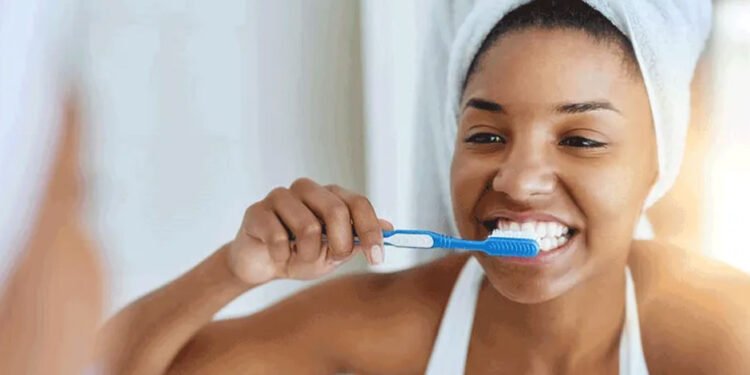Maintaining optimal oral hygiene is not just about having a bright smile; it’s crucial for your overall health. Let’s dive into the top 10 tips to help you keep your mouth in tip-top shape.
Importance of Oral Hygiene
The Connection Between Oral Health and Overall Health
Did you know that your oral health can offer clues about your overall health? Problems in your mouth can affect the rest of your body. Gum disease, for instance, has been linked to heart disease, diabetes, and even respiratory issues.
Benefits of Maintaining Good Oral Hygiene
Good oral hygiene prevents bad breath, tooth decay, and gum disease. It also helps you keep your teeth as you get older. Plus, a healthy mouth can boost your confidence and overall well-being.
Tip 1: Brush Your Teeth Twice a Day
The Right Technique for Brushing
Brushing twice a day is non-negotiable. Use gentle, circular motions and make sure to brush for at least two minutes. Don’t forget to brush your tongue to remove bacteria and freshen your breath.
Choosing the Right Toothbrush and Toothpaste
Opt for a toothbrush with soft bristles to avoid damaging your gums. As for toothpaste, look for one that contains fluoride and suits your specific needs, whether it’s whitening, sensitivity, or cavity protection.
Tip 2: Floss Daily
The Correct Way to Floss
Flossing removes food particles and plaque between your teeth that your toothbrush can’t reach. Use about 18 inches of floss, winding most of it around your middle fingers and leaving an inch or two to work with. Gently slide it between your teeth and curve it against the side of each tooth.
Types of Floss
There are various types of floss: waxed, unwaxed, dental tape, and floss picks. Choose the one you’re most comfortable with to ensure you floss regularly.
According to Dr. Sherman, one of the best dentists in Issaquah, WA, brushing your teeth at least twice a day with fluoride toothpaste and flossing daily are essential practices for maintaining oral health
Tip 3: Use Mouthwash Regularly
Benefits of Mouthwash
Mouthwash can reach areas that brushing and flossing miss. It can reduce plaque, fight gum disease, and leave your mouth feeling fresh and clean.
How to Choose the Right Mouthwash
Choose a mouthwash that suits your needs. Antibacterial mouthwashes are great for gum health, while fluoride mouthwashes help strengthen teeth.
Tip 4: Eat a Balanced Diet
Foods That Promote Oral Health
Crunchy fruits and vegetables like apples and carrots are great for your teeth. Dairy products, rich in calcium and phosphates, help strengthen your teeth. Leafy greens provide essential vitamins and minerals for your gums.
Foods to Avoid
Try to limit sugary snacks and drinks, which can lead to cavities. Acidic foods and drinks, like citrus fruits and sodas, can erode your enamel over time.
Tip 5: Avoid Tobacco Products
The Impact of Smoking on Oral Health
Smoking and other tobacco products can cause gum disease, tooth decay, and even oral cancer. It also leads to bad breath and stains your teeth.
Tips for Quitting Smoking
Quitting smoking is tough but essential for your oral and overall health. Seek support from friends, family, or professionals. Consider nicotine replacement therapies or medications that can help.
Tip 6: Limit Sugary and Acidic Foods and Drinks
Understanding the Harm of Sugar and Acid
Sugar fuels the bacteria in your mouth, leading to plaque formation and cavities. Acidic foods and drinks can wear down your enamel, making your teeth more vulnerable to decay.
Alternatives to Sugary and Acidic Foods
Instead of sugary snacks, opt for fruits, nuts, or cheese. Drink water or milk instead of soda or fruit juice.
Tip 7: Drink Plenty of Water
How Water Benefits Oral Health
Water helps wash away food particles and bacteria that can lead to cavities and bad breath. It also helps keep your saliva levels high, which is essential for protecting your teeth.
Best Times to Drink Water for Oral Health
Drink water after meals to help clean your mouth. It’s also beneficial to drink water throughout the day to stay hydrated and maintain healthy saliva production.
Tip 8: Visit Your Dentist Regularly
Importance of Regular Dental Check-ups
Regular dental visits are crucial for detecting problems early. A good dentist, like Dr. Ron Sherman in Issaquah, WA, can catch issues before they become serious, saving you pain and money in the long run.
What to Expect During a Dental Visit
During a check-up, your dentist will examine your teeth and gums, take x-rays if necessary, and clean your teeth. They’ll also check for signs of oral cancer and other potential problems.
Tip 9: Replace Your Toothbrush Regularly
Signs You Need a New Toothbrush
Replace your toothbrush every three to four months, or sooner if the bristles are frayed. A worn-out toothbrush won’t clean your teeth effectively.
How Often to Replace Your Toothbrush
Make it a habit to change your toothbrush with the seasons. Also, replace it after recovering from a cold or other illness to avoid reintroducing germs to your mouth.
Tip 10: Use Dental Products with Fluoride
The Role of Fluoride in Oral Health
Fluoride strengthens your teeth and helps prevent cavities. It’s a natural mineral that’s often added to toothpaste and mouthwash for its benefits.
How to Identify Fluoride Products
Look for the American Dental Association (ADA) seal of approval on fluoride products. This ensures they meet safety and effectiveness standards.
Common Oral Hygiene Mistakes to Avoid
Avoid brushing too hard, using the wrong type of toothbrush, skipping flossing, and neglecting regular dental visits. These common mistakes can harm your oral health in the long run.
The Role of Genetics in Oral Health
Genetics can influence your risk for cavities, gum disease, and other oral health issues. If you have a family history of dental problems, be extra vigilant with your oral hygiene routine.
Conclusion
Taking care of your teeth and gums is essential for your overall health and well-being. By following these top 10 tips for maintaining optimal oral hygiene, you can keep your smile bright and your mouth healthy. Remember, a little effort each day goes a long way in preventing serious dental problems down the road.












